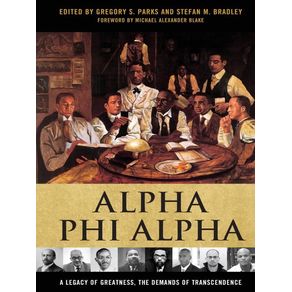On December 4, 1906, on Cornell University's campus, seven black men founded one of the greatest and most enduring organizations in American history. Alpha Phi Alpha Fraternity Inc. has brought together and shaped such esteemed men as Martin Luther King Jr., Cornel West, Thurgood Marshall, Wes Moore, W. E. B. DuBois, Roland Martin, and Paul Robeson. "Born in the shadow of slavery and on the lap of disenfranchisement," Alpha Phi Alpha -- like other black Greek-letter organizations -- was founded to instill a spirit of high academic achievement and intellectualism, foster meaningful and lifelong ties, and racially uplift those brothers who would be initiated into its ranks.
In Alpha Phi Alpha, Gregory S. Parks, Stefan M. Bradley, and other contributing authors analyze the fraternity and its members' fidelity to the founding precepts set forth in 1906. They discuss the identity established by the fraternity at its inception, the challenges of protecting the image and brand, and how the organization can identify and train future Alpha men to uphold the standards of an outstanding African American fraternity. Drawing on organizational identity theory and a diverse array of methodologies, the authors raise and answer questions that are relevant not only to Alpha Phi Alpha but to all black Greek-letter organizations.

